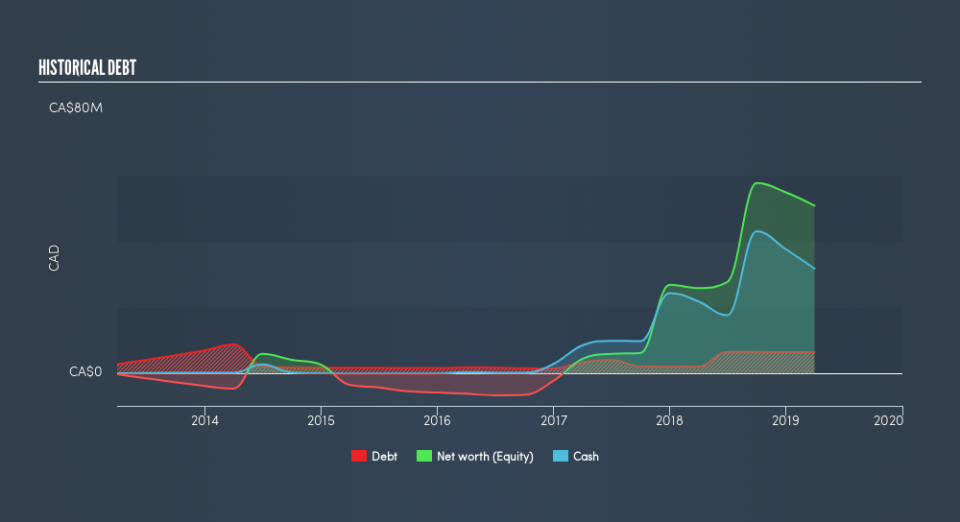Health Check: How Prudently Does Radient Technologies (CVE:RTI) Use Debt?

David Iben put it well when he said, 'Volatility is not a risk we care about. What we care about is avoiding the permanent loss of capital.' When we think about how risky a company is, we always like to look at its use of debt, since debt overload can lead to ruin. We can see that Radient Technologies Inc. (CVE:RTI) does use debt in its business. But the more important question is: how much risk is that debt creating?
What Risk Does Debt Bring?
Debt and other liabilities become risky for a business when it cannot easily fulfill those obligations, either with free cash flow or by raising capital at an attractive price. In the worst case scenario, a company can go bankrupt if it cannot pay its creditors. However, a more usual (but still expensive) situation is where a company must dilute shareholders at a cheap share price simply to get debt under control. By replacing dilution, though, debt can be an extremely good tool for businesses that need capital to invest in growth at high rates of return. When we think about a company's use of debt, we first look at cash and debt together.
See our latest analysis for Radient Technologies
What Is Radient Technologies's Net Debt?
You can click the graphic below for the historical numbers, but it shows that as of March 2019 Radient Technologies had CA$6.46m of debt, an increase on CA$2.35m, over one year. But it also has CA$31.8m in cash to offset that, meaning it has CA$25.3m net cash.
How Strong Is Radient Technologies's Balance Sheet?
The latest balance sheet data shows that Radient Technologies had liabilities of CA$3.69m due within a year, and liabilities of CA$6.49m falling due after that. Offsetting these obligations, it had cash of CA$31.8m as well as receivables valued at CA$199.1k due within 12 months. So it can boast CA$21.8m more liquid assets than total liabilities.
This surplus suggests that Radient Technologies has a conservative balance sheet, and could probably eliminate its debt without much difficulty. Succinctly put, Radient Technologies boasts net cash, so it's fair to say it does not have a heavy debt load! There's no doubt that we learn most about debt from the balance sheet. But it is Radient Technologies's earnings that will influence how the balance sheet holds up in the future. So when considering debt, it's definitely worth looking at the earnings trend. Click here for an interactive snapshot.
It seems likely shareholders hope that Radient Technologies can significantly advance the business plan before too long, because it doesn't have any significant revenue at the moment.
So How Risky Is Radient Technologies?
By their very nature companies that are losing money are more risky than those with a long history of profitability. And in the last year Radient Technologies had negative earnings before interest and tax (EBIT), truth be told. And over the same period it saw negative free cash outflow of CA$28m and booked a CA$28m accounting loss. But at least it has CA$32m on the balance sheet to spend on growth, near-term. Overall, its balance sheet doesn't seem overly risky, at the moment, but we're always cautious until we see the positive free cash flow. When I consider a company to be a bit risky, I think it is responsible to check out whether insiders have been reporting any share sales. Luckily, you can click here ito see our graphic depicting Radient Technologies insider transactions.
When all is said and done, sometimes its easier to focus on companies that don't even need debt. Readers can access a list of growth stocks with zero net debt 100% free, right now.
We aim to bring you long-term focused research analysis driven by fundamental data. Note that our analysis may not factor in the latest price-sensitive company announcements or qualitative material.
If you spot an error that warrants correction, please contact the editor at editorial-team@simplywallst.com. This article by Simply Wall St is general in nature. It does not constitute a recommendation to buy or sell any stock, and does not take account of your objectives, or your financial situation. Simply Wall St has no position in the stocks mentioned. Thank you for reading.

